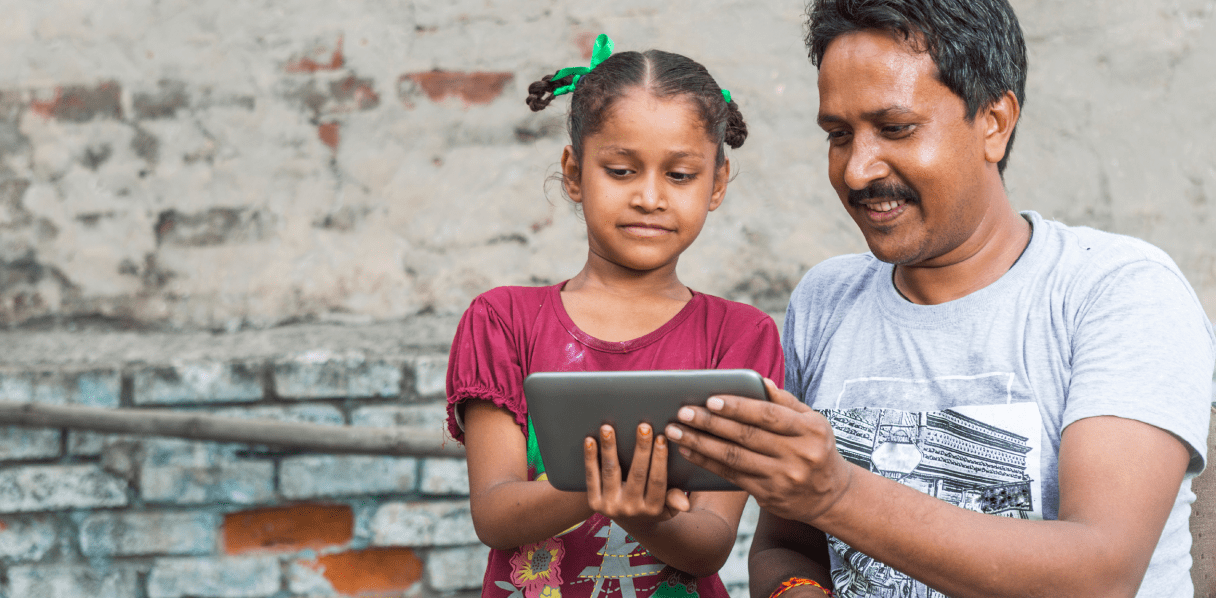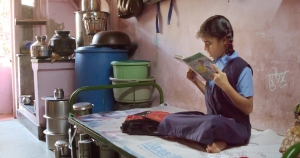The 2022-23 academic year has come closest to a normal start, with schools reopening for all children in most states after a long gap of two years. While India was already reeling under a learning crisis even before Covid-19, the pandemic further exacerbated the situation with its prolonged school closures. As per the Foundational Learning Survey, conducted jointly by the Ministry of Education and NCERT, in March 2022, 11% of the children currently enrolled in Grade 3 did not have basic grade-level numeracy skills and 37% had only limited math skills and knowledge. For literacy, nearly 30% of children reflected limited proficiency.
As schools reopen, there is now more focus on the implementation of school readiness programs for Grade 1 children and remedial modules for older children to build strong foundational skills and bridge learning gaps. However, as education systems are built back better, it is important that the learnings from the pandemic guide our present and future.
Parental and community involvement, along with innovative technology solutions should become essential ingredients of the education ecosystem. Studies globally and in India show the causal link between increased parental engagement and children’s learning outcomes. Blended learning accompanied by increased parental engagement can act as a strong complement to in-classroom instruction and promote holistic development for children equipping them with skills necessary not only for school but also for life.
Rocket Learning combines the two elements- leveraging a low-tech WhatsApp-based solution to create digital learning communities and driving parental involvement in early childhood education for over 1 million children in six states in India. We partner with governments to deliver automated, age-appropriate and play-based learning content to parents via WhatsApp groups anchored by teachers. This group model where parents conduct the activities with their children and share their responses back in the group creates social motivation, accountability, and peer effects for long-term engagement.
Home-learning program for erstwhile East Delhi Municipal Corporation (EDMC) schools– a model use case for government education systems
Rocket Learning’s E-Pathshala program was launched in 350+ schools (Grade 1 and 2) of erstwhile EDMC, now a part of the MCD, in December 2021. The program aims to support MCD’s Education Department and teachers in engaging parents and communities in early childhood education to ensure strong foundational skills and improved learning outcomes of children.
Currently, over 50,000 parents covered under the program receive automated learning content on school WhatsApp groups every day. The content includes simple, play-based learning activities that can be done with readily available household materials, promoting a child’s development, while also supplementing classroom instruction and facilitating healthy parent-child interactions.
So far, the program has received positive feedback from both teachers and parents. Over 85% of parents now reflect improved participation as a result of this intervention. Further, we have seen high engagement even after schools reopened as parents continue to support children with learning at home.
“Parents are actively engaging with audio-visual activities, worksheets, etc., shared on the E-Pathshala group and helping their children learn. Appreciation and motivation provided in the groups help in keeping the morale high. The program should continue even with the physical resumption of classes.”
-EDMC teacher on E-Pathshala Program
As most parents in low-income communities are not used to considering themselves as important participants in their child’s learning journey, regular campaigns are run to build awareness around the importance of early learning and increased parental involvement. Further, personalized nudges and regular recognition through virtual awards such as weekly report cards, certificates, medals, etc., have been crucial in improving parents’ confidence and sustaining motivation to stay engaged for a long-term.


active users
Lab schools for an evidence-based and user-centered design process
Just as the two-way communication channel has been a critical pillar in sustaining engagement on WhatsApp groups, focused two-way learning channels with the launch of Lab schools has helped us in learning from our users, garnering valuable insights about the product and in setting up strong feedback loops.
Lab schools were piloted in three schools in Shahdara North and South zones, with a high number of super users (parents who complete more than 12 activities in a month) in March 2022 to get feedback on content and product effectiveness. The objective of Lab schools is to
–Check the translation of monthly content into learning outcomes
Assessments are conducted for 40 Grade 1 and Grade 2 children in the three Lab schools every six weeks, to understand the efficacy of content shared in the groups. Insights from the assessment results are then leveraged to design and revise the content plan for both grades for the coming months. For EDMC, the Lab school tests have helped in identifying concepts that most children found challenging, such as Hindi maatras in literacy and place values and subtraction in numeracy.
–Gaining user insights on our product
The assessments are followed by parent interviews, especially for children who are unable to perform well or as expected. These deep dives help in observing parent-child learning interactions and collecting in-depth qualitative feedback on both content and product features. For example, when we asked parents to complete the activity with the child, we realized that some parents were not giving the child enough time to process the information and needed help with facilitation. An interactive campaign was thus started on the groups to encourage parents in practicing patience while helping their children with studies. Another such learning was about users finding it difficult to navigate the external link for the weekly quizzes; to mitigate this, sharing explainer videos with parents on WhatsApp groups has helped since then in the uptake for the quizzes.
So far, the collective insights from assessments and deep dives with the parents have been crucial in understanding our users better, improving content, and making the product more user-centric. We are now looking at the expansion of Lab Schools in Haryana, Chandigarh, Maharashtra, and Uttar Pradesh.
As smartphone penetration increases, urban learning on access and engagement can be leveraged in rural contexts as well
Rocket Learning has seen high adoption and engagement for its home-learning solution in East Delhi, an urban set up with high smartphone penetration, internet access, and greater familiarity with mobile and tech applications. Around 40% of the active participants continue to engage and respond with home-learning activities on our groups on a monthly basis (with an average weekly active user spending 0.5-1 hour every week on educational activities), indicating habit-building for parents in their child’s learning journeys. Quicker feedback cycles informed by quantitative and qualitative feedback loops have helped fine-tune the ed-tech product as well as measure impact. Learnings from this model can pave the way to sustainable EdTech solutions spanning other demographics in India, especially with tailwinds of increased smartphone penetration and digital literacy even in rural India.
Our work in states such as Haryana, Uttar Pradesh, and recently in Delhi has shown that creation of similar digital learning communities can lead to high participation from children, parents, and teachers. They can bring schools and teachers much closer to parents and bring about a positive shift in parent mindsets. They can also help in building awareness around education and empowering parents to support their children with learning. Further, strong parent and teacher partnerships can lead to better classroom instruction and the two-way, evidence-led feedback can help in improving learning outcomes for children.
As the EdTech opportunity and reality unfolds in India over the next few years, it is important for education systems to embrace cost-effective and scalable blended learning solutions, ensure a user-centric design, and build capacity for key stakeholders including both teachers and parents.



